Patch impact report 2021: environment
Our mission is to make the world a greener place. That’s not just about bringing plants to homes but helping protect the planet and minimise our effect on the environment.
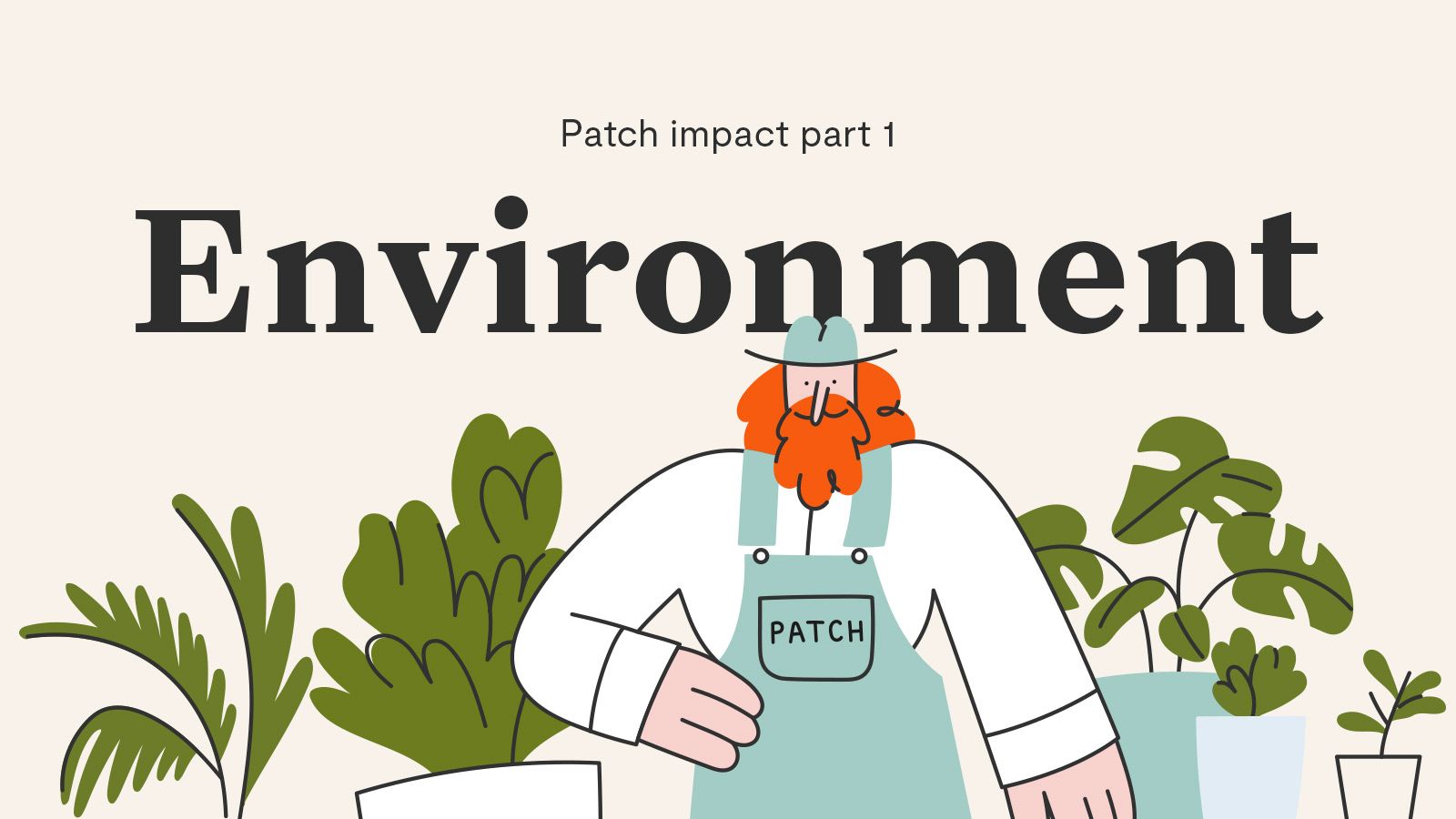
Our commitment to the environment
- To align to the science based targets initiatives (SBTi) by reducing our absolute scope 1 & 2 carbon emissions by 42% by 2030, and to actively reduce our scope 3 emissions per product
- By 2030 our organisation and supply chain will have no net impact on the climate.
The Paris Agreement, signed by 190 countries and the European Union, is a legally-binding commitment to keep the global average temperature increase below 2°C. This can’t be just a government commitment. Businesses need to do their part too. Aligning with the SBTi helps us ensure our targets are in line with the agreement and latest climate science. For the emissions that we cannot remove yet, we will offset the equivalent through peat restoration investment, for no net impact.
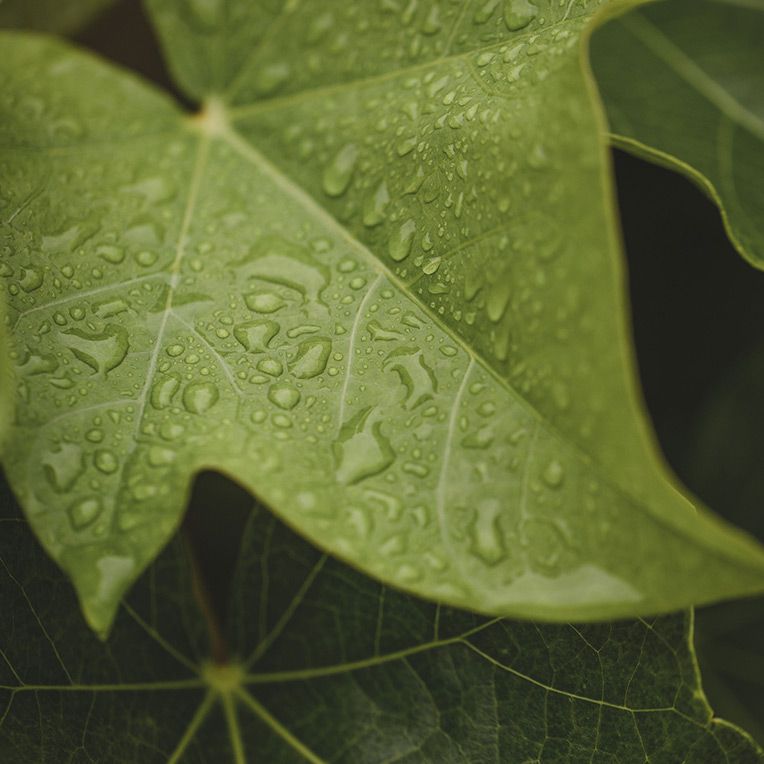
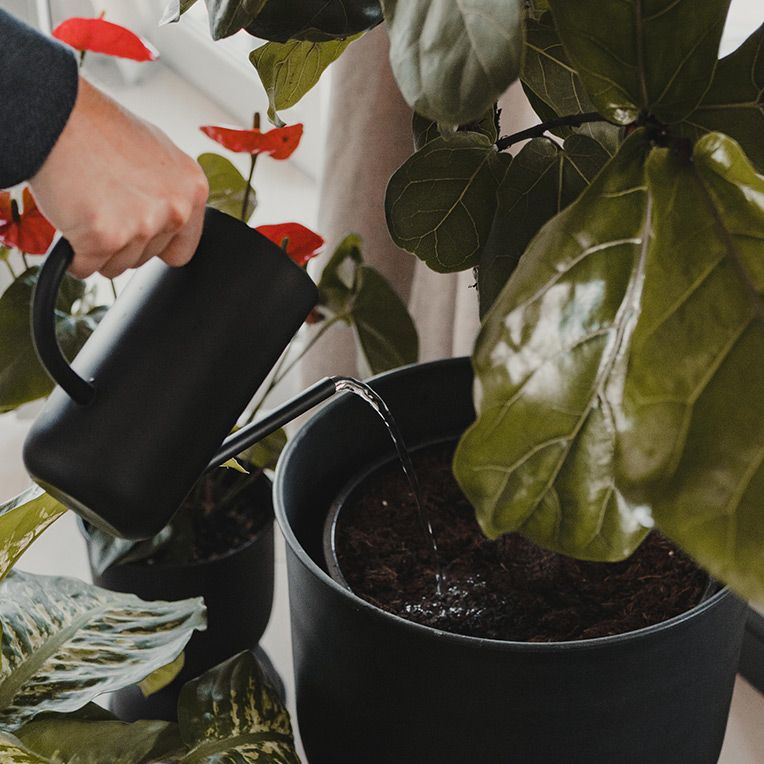
Understanding our impact
To understand how to improve, we first need to know where to improve. We commissioned an environmental consultancy to map out our carbon footprint and run lifecycle analysis on four of our bestselling products, so we can see the impact of a plant from the moment we receive it from our supplier to the moment it’s received by the customer.
For 2020, our carbon footprint equated to 719.34 tCO2e, the equivalent of 156 cars driven for a year. With that baseline, we can set targets in line with the Science Based Targets initiative and commit to working towards reducing our scope 1 and 2 emissions; measure, disclose, and reduce scope 3 emissions; and publicly report our company-wide greenhouse gas emissions on an annual basis. We have carried out training across the business, so consideration for the environment becomes part of our culture and ultimately all decisions.
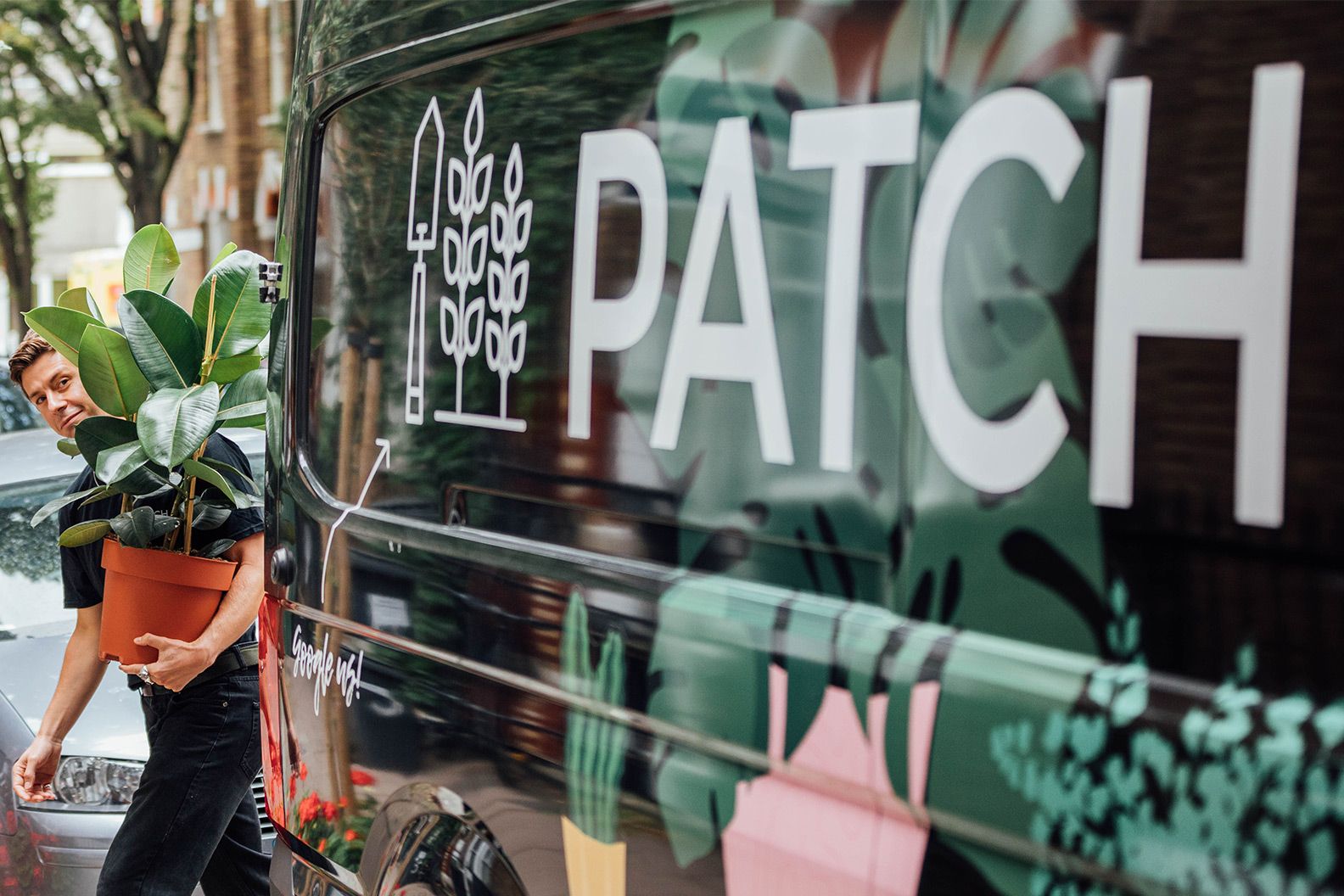
Reducing our impact
Transport and distribution are the largest contributors to our carbon footprint, so these were the first areas we focused on. Many of our nationwide deliveries are now fulfilled by DPD. 10% of DPD’s fleet is currently made up of electric vehicles and it plans to have 1,500 electric vehicles on the road by the end of 2021. We hope to soon have electric vehicles delivering more of our London orders too. We’ve maximised the efficiency of our delivery routes, so vans drive no further than they have to.
We’re working with our suppliers to reduce packaging and, where possible, eliminate single-use plastic. We now use padded paper, not bubble wrap, to protect products in transit. We’ve sourced paper and cardboard packaging that is FSC certified or made with 99% recycled material.
The plastic pots we sell are produced by Elho, which has been a certified B Corporation since January 2021. The pots Elho produces are made with at least 85% recycled plastic and are 100% recyclable. The power to manufacture them is generated by 100% wind energy.
We want to minimise environmental impact at all stages of delivery, including in our fulfillment centre, where orders are prepared for delivery. We’re working with a new fulfilment partner, a member of the Horticulture Climate Change Agreement. They are making considerable efforts to reduce emissions. Around 80% of their heat requirements are delivered through a biomass boiler, and they use energy management software to maximise energy efficiency.
We now ask Patch employees to only travel when essential, and if travel is essential we explore the most environmentally-friendly options. Our remote working policy, which only requires two days per week in a shared workspace, significantly reduces each employee’s travel. We have also introduced a cycle-to-work scheme, open to all employees.
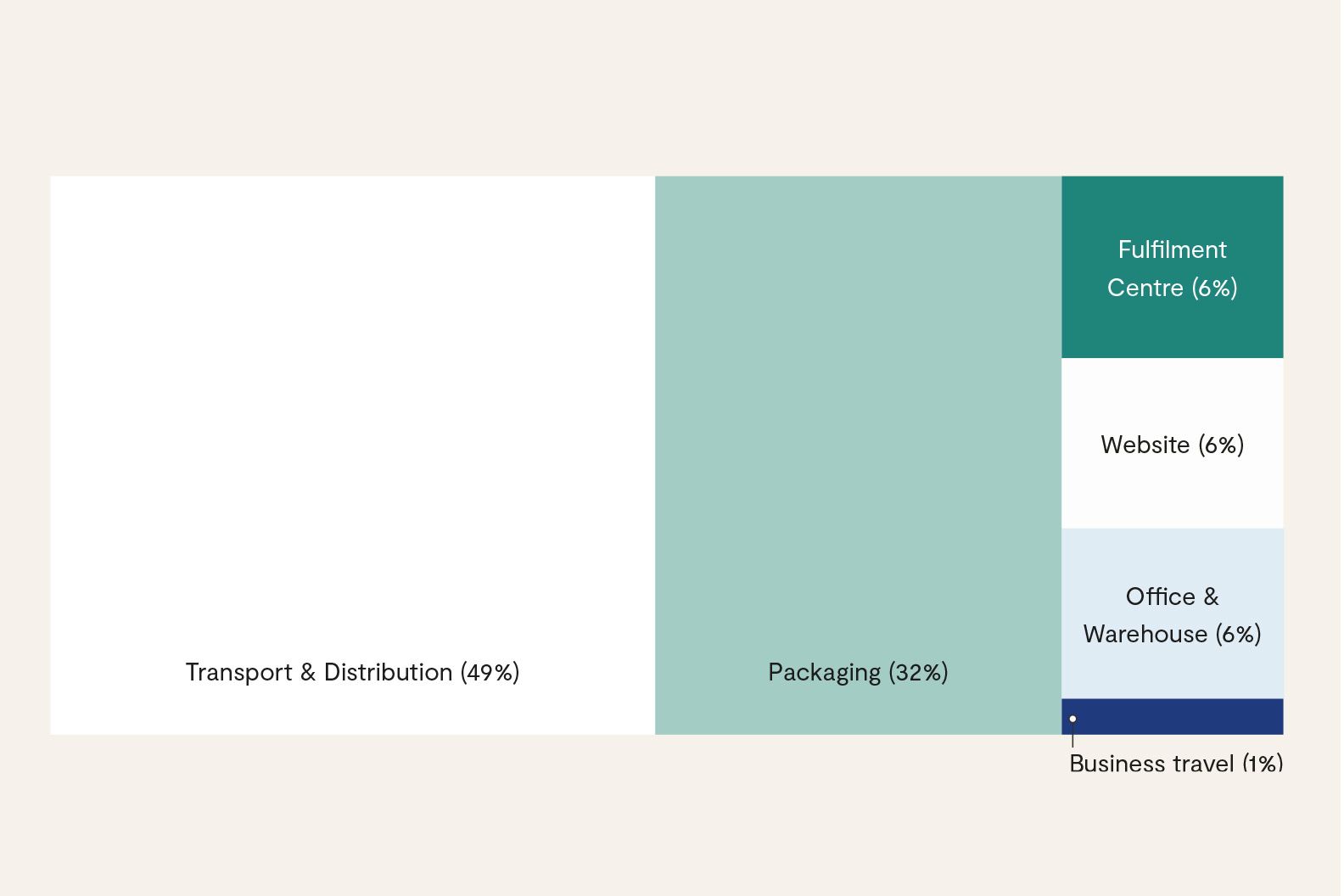
Tentree
In 2021, we partnered with Tentrees for Green Friday. For every qualifying order placed at Patch, Tentrees planted ten mangrove trees in Indonesia. One mangrove tree can absorb over 308kg in its lifetime. The partnership resulted in the planting of 4,500 trees. Tentrees has planted over 50 million trees since its inception, with the goal of planting 1 billion by 2030.
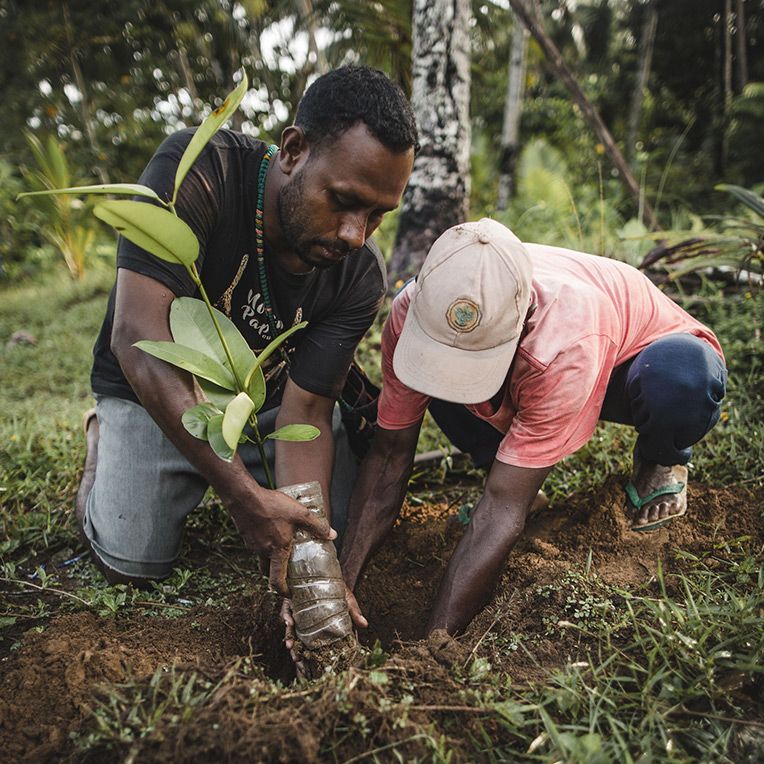

Peat
The horticultural industry’s use of peat continues to have a severe negative impact on the environment. It’s something many in the industry, including Patch, want to end. Peat, formed by the decomposition of bog plants, is a vital part of helping reduce greenhouse gasses. Peat stores carbon, rather than releasing it into the atmosphere as carbon dioxide (a greenhouse gas). It’s also an important environment for a huge range of wildlife.
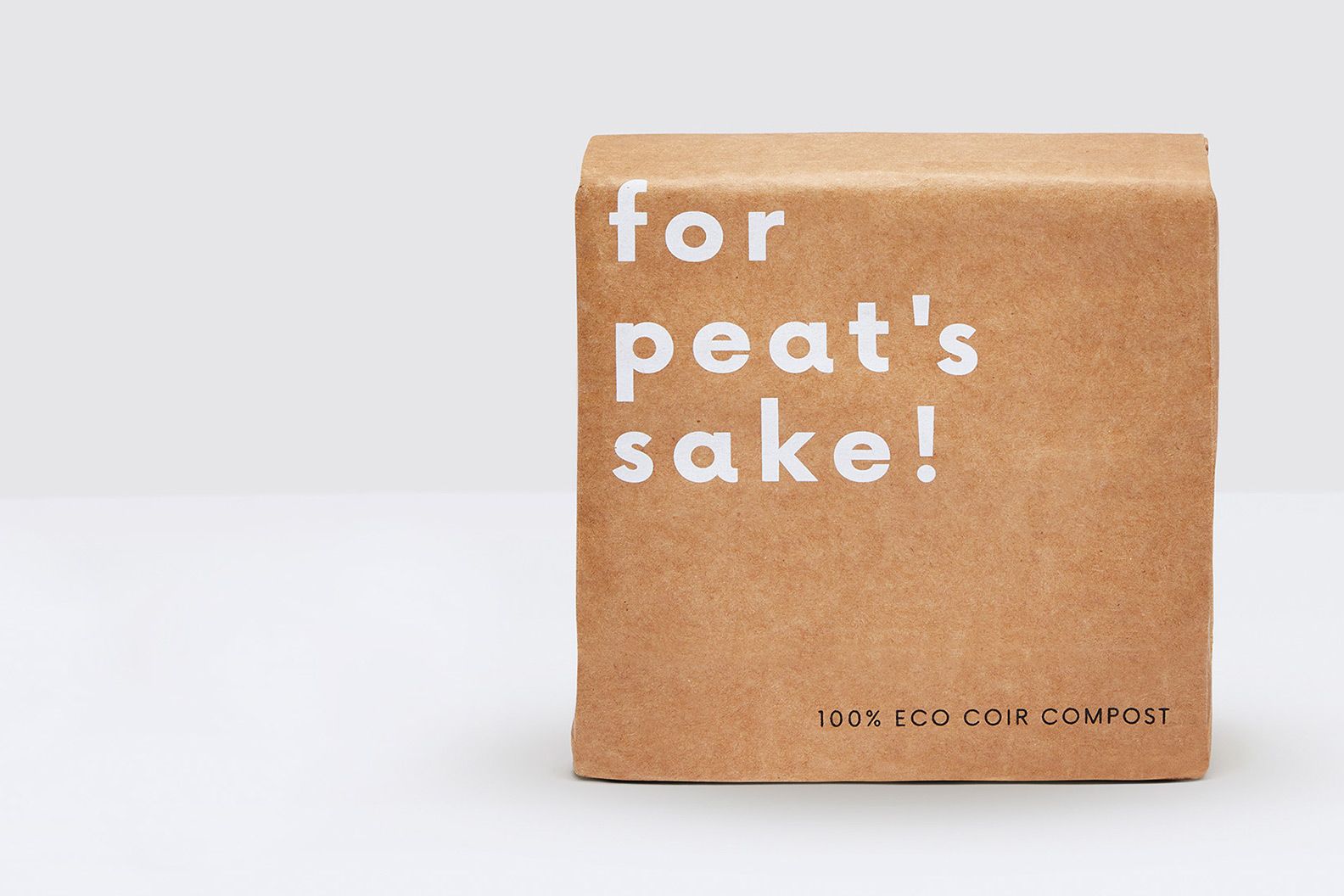
Rewild your inbox
Plant tips. Special offers. No spam.
You might like
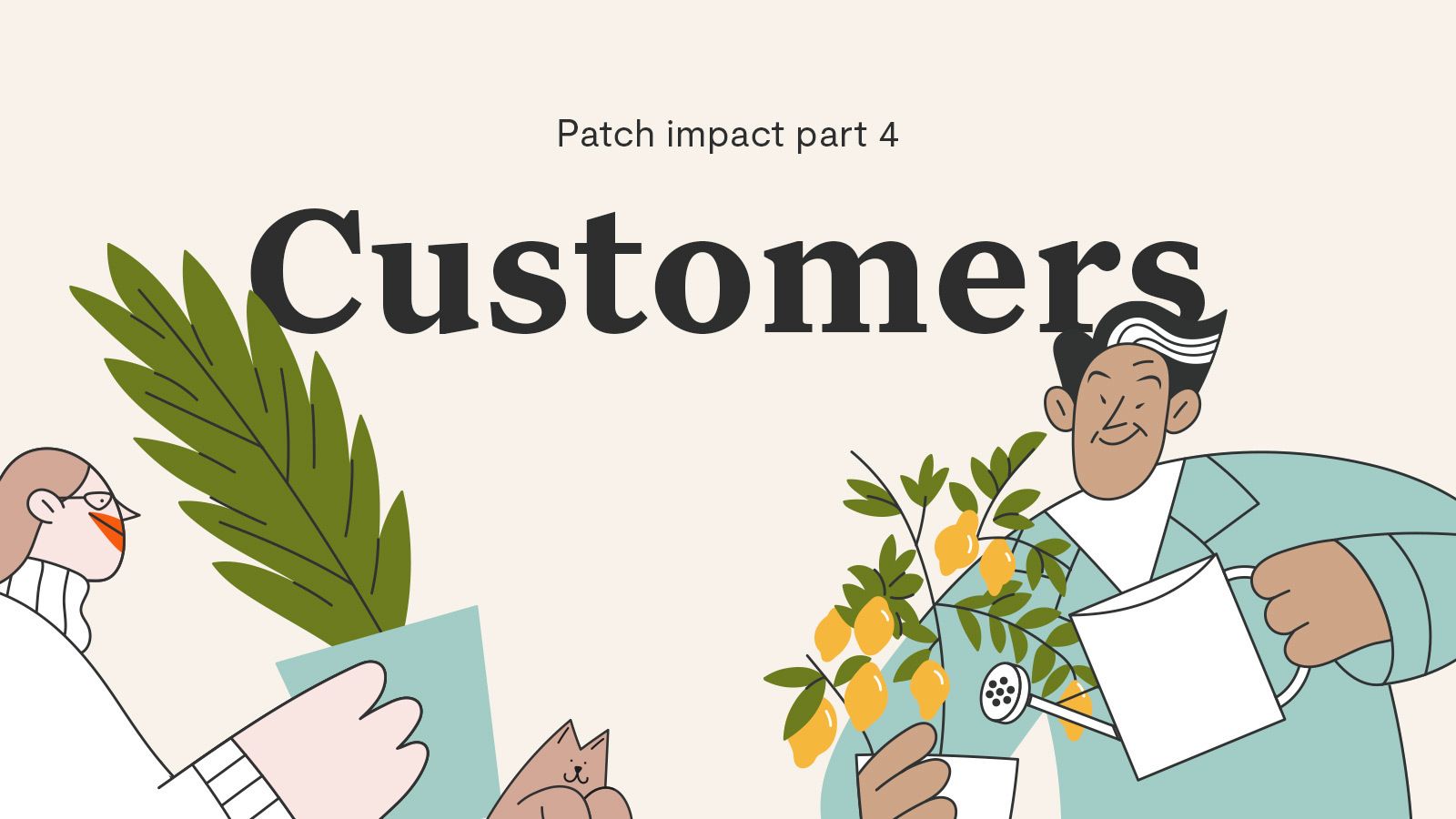
Patch impact report 2021: customers
Patch impact report 2021: customers
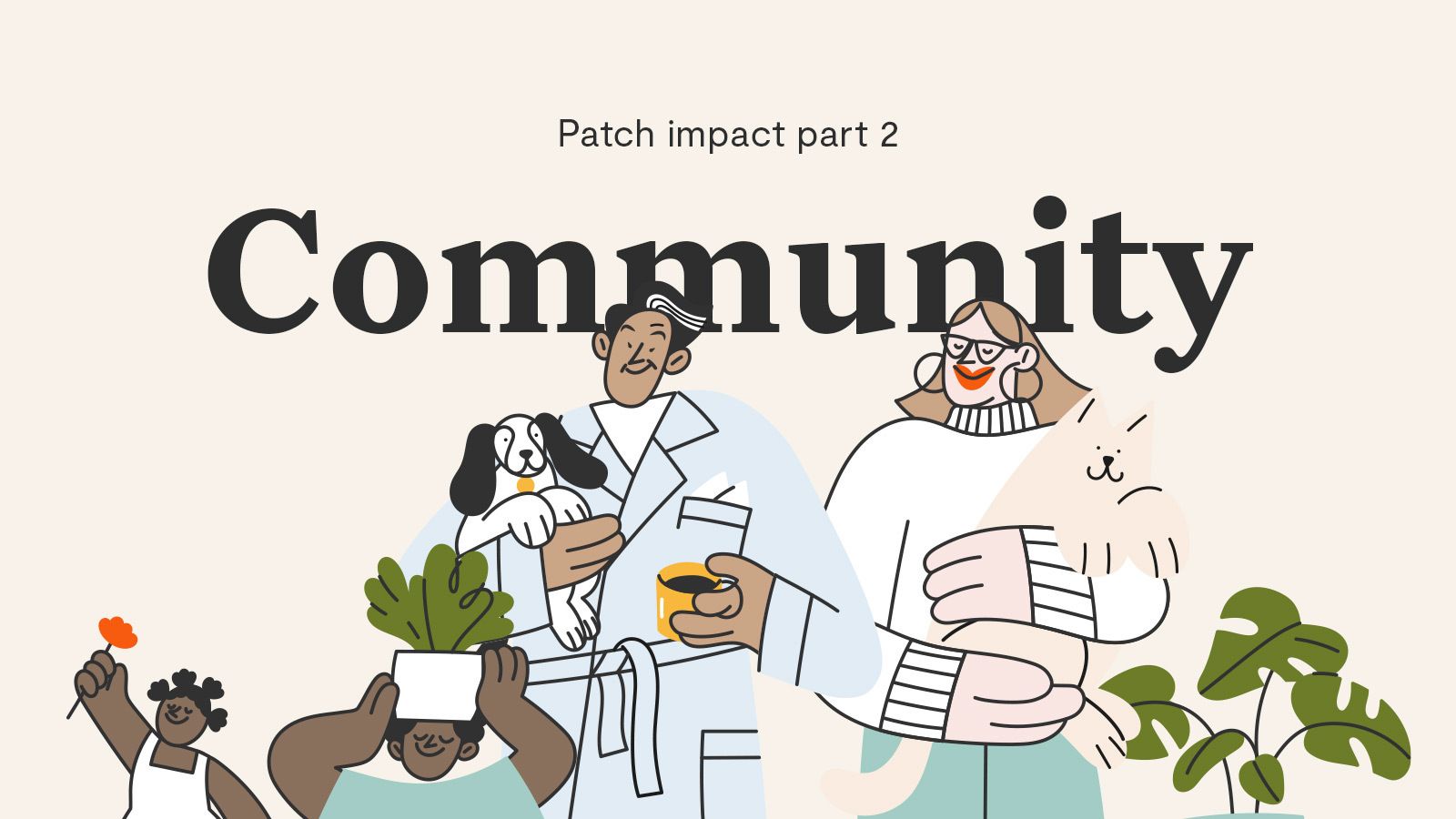
Patch impact report 2021: community
Patch impact report 2021: community
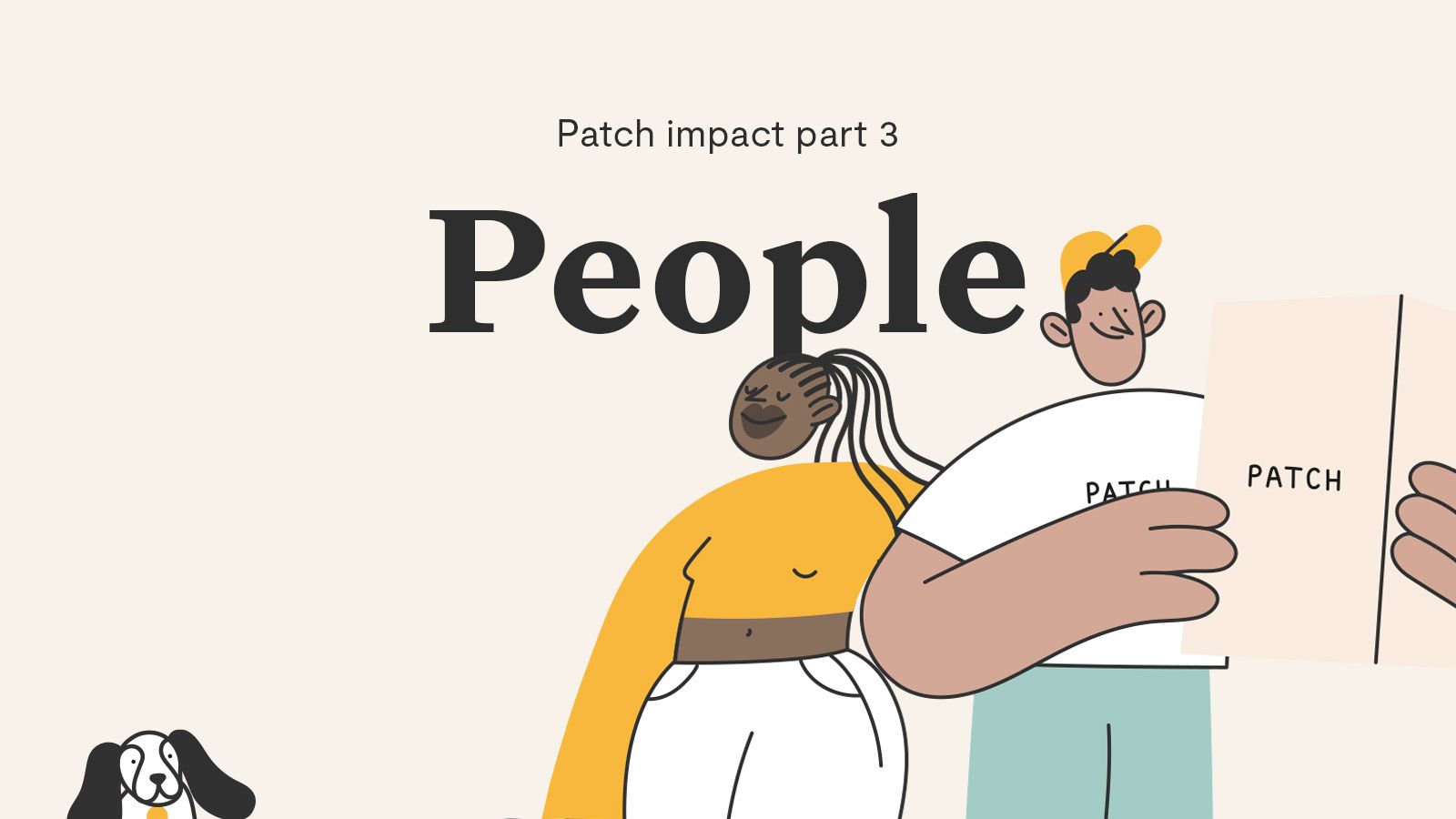
Patch impact report 2021: people
Patch impact report 2021: people
